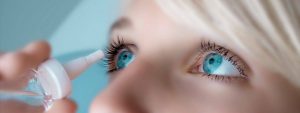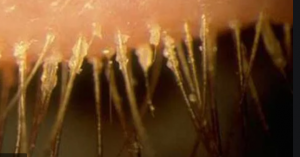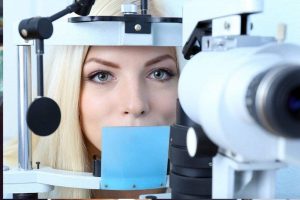Over two million people have taken Accutane to treat severe acne.
When severe acne is unresponsive to topical treatments, an oral medication called Accutane, is often recommended.
Accutane, also known by its generic name isotretinoin, is a prescription drug proven to reduce or eliminate stubborn acne. It works by shrinking the oil glands in the skin to decrease oil production and unclog facial pores.
The problem is, when Accutane enters the bloodstream, it has the same oil-reducing effect all over the body, including the eyelids, and can result in dry eye symptoms and severe ocular discomfort.
Symptoms of dry eye
- Red eyes
- Excessive tearing
- Gritty eyes
- Burning in the eyes
- Irritated eyes
- Light sensitivity
- Blurred vision
- Contact lens discomfort
How does Accutane cause dry eyes?
When the tiny meibomian glands that line the margin of the eyelids are impacted by the effects of Accutane, dry eye can result.
The meibomian glands are responsible for secreting the oil that comprises part of the tear film. The oil layer is responsible for preventing excess tear evaporation and maintaining moisture in the tears.
Can Accutane cause other eye problems?
Yes.
A study published in JAMA Dermatology (2002) reported that Accutane significantly increases the risk of a range of ocular conditions, as a result of changes that occur in the eyelids, meibomian glands, tear film, cornea and retina.
Some of these conditions include:
- Blepharitis
- Conjunctivitis
- Light sensitivity
- Contact lens intolerance
- Papilledema
- Abnormal retinal function
SEE RELATED: What Is Dry Eye Syndrome?
If you are experiencing any of the dry eye symptoms above, contact an eye doctor near you to learn about all the effective treatment options.
When to see an eye doctor?
If you are experiencing dry eye symptoms, or any other visual concern, schedule a dry eye assessment with an eye doctor as soon as possible.
Mild to moderate dry eye symptoms can often be treated with artificial tears lubricating eye drops, gels or ointments.
If your symptoms are severe, your eye doctor may recommend consulting with your dermatologist to inquire about other acne medications that won’t impact your eye health.
Fortunately, dry eye symptoms from Accutane typically resolve within a few weeks after stopping the drug.
However, one study published in Optometry and Vision Science (2015) found that 1% of Accutane patients suffered from permanent meibomian gland dysfunction after completing their course of treatment.
LEARN MORE: Guide to Eye Conditions
If you or a loved one is currently taking Accutane and are experiencing symptoms of dry eye, contact and eye doctor near you.
When severe acne is unresponsive to topical treatments, an oral medication called Accutane, is often recommended.
However, when Accutane affects the meibomian glands, uncomfortable dry eye symptoms can result.









